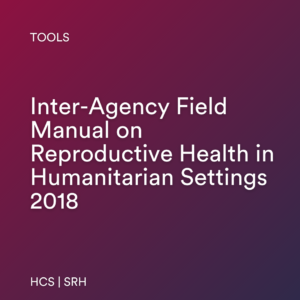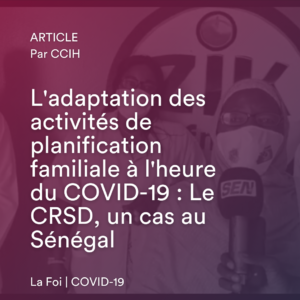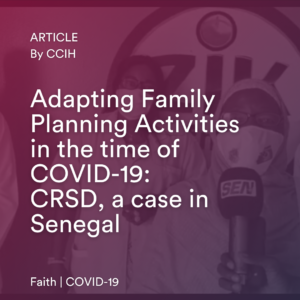Private Sector
Community Page
About the Private Sector Subcommittee
The private sector subcommittee was formally established in January 2020 with the goal of planning and generating activities for ICFP 2022 which will increase the strategic visibility and engagement of the private sector. The subcommittee was proposed to the ICFP Core Organizing Group in late 2019 and subsequently approved.
The work of this new subcommittee is important as forecasts of stagnating (or declining) donor funding for family planning (FP) raises concerns about the future and triggers more focus on the private sector’s ability to meet users’ needs. While the topic of sexual and reproductive health is highly visible and demand is growing, there is a need to mobilize private sector resources and participation.
Historical participation of large innovator manufacturers and social marketing organizations at ICFP is well-recognized and valued. This sub-committee will strive to engage with those actors as well as additional segments of the private sector, to increase the reach to organizations that play a significant and growing role in enabling and providing family planning related services and products. Examples of organizations that we would seek to engage include midwifery associations, independent social enterprises and clinics, private health insurance providers and employer groups.
Committee's Vision for ICFP2022
The Private Sector Subcommittee’s overall goal is to increase the strategic visibility and participation of the private sector, through advanced planning of events and efforts for the next ICFP conference.
Members, Partners & Supporters
Organizations represented on the subcommittee:
Abt Associates, Avenir Health, Bayer, Bill & Melinda Gates Foundation, Bill & Melinda Gates Institute, CARE, CHAI, Commission of Gender Equality (South Africa), Danish Family Planning Association, Female Health Company, FHI360, FP2020, Global Affairs Canada, Healthy Reform Foundation of Nigeria, Incepta Pharmaceuticals (Bangladesh), India Health Action Trust, Institute of Business Management (Pakistan), Institute for Social and Youth Development (Pakistan), IntraHealth, IPPF, Jhpiego, John Snow Incorporated, Knit Together Initiative (Nigeria), Love Matters India, Marie Stopes International, Medicines360, Ministry of Health, Kisumu West (Kenya), Palladium, PATH, Pathfinder International, Pfizer, Population Council, Population Services International, PT Tunggal, Reproductive Health Supplies Coalition (RHSC), SERAC Bangladesh, Social Marketing Company SMC (Bangladesh), UNFPA, UN Foundation, USAID, WCG Cares, The William Davidson Institute at the University of Michigan (WDI), Y Coalition.
Get In Touch
If you are interested in knowing more about the ICFP Private Sector Subcommittee, please get in touch.
Contact:
Dorine Irankunda
dirankunda@psi.org
Co-Chairs for Private Sector Subcommittee,
ICFP 2022
The Private Sector at ICFP2022
See all private sector-related events at ICFP2022 in this PDF:
Pre-conference:
The Private Sector and Digital Health Solutions:
Expanding Access to Quality Family Planning/Reproductive Health
13 November 2022 | 2:00 PM – 5:00 PM
Royal Cliff Grand Hotel, Room Pattaya 12
Pattaya City, Thailand
The ICFP private sector subcommittee is organizing a pre-conference session with a focus on the role of the private sector and digital health in expanding access to quality FP information, products, and services. The pre-conference is planned for Sunday, November 13, 2:00 – 5:00 PM Thailand time.
Given the growth of digital solutions in the global FP markets and ever-increasing complexity, this three-hour session will focus on the role of the private sector and utilization of digital solutions to expand access to high quality SRH/FP information, products and services.
View the presentation slides from this conference at the link below:
Watch video recordings from this pre-conference below:
Pre-conference Format & Speakers:
Panel 1
See details for Panel 1 of the Private Sector pre-conference below.
Moderator:

Rodio Diallo,
Senior Program Officer, Family Planning
Rodio Diallo leads the private sector pharmacy and drug shop bodies of work portfolio to expand contraceptive access and uptake in the Gates Foundation priority geographies for family planning. She is the technical support for Family Planning working with the Foundation’s Africa Regional Office (ARO) and family planning initiative teams, working from Abuja, Nigeria.
Prior to joining the foundation, Rodio worked at Population Services International for more than fifteen years, where she served as Deputy Director in Haiti, Country Representative in Togo, Guinea Bissau, Mali, and Uganda. In addition, Rodio served as the IntraHealth Chief of Party for Senegal, leading the bilateral program for addressing key family health challenges with a focus on integrating Family Planning and MNCH/Malaria and Nutrition.
Rodio holds a bachelor’s degree from Dakar University of Technology – with a major in Marketing and Communications- and a Master of Sciences in Public Health in Developing Countries from the London School of Hygiene and Tropical Medicine.
Panelists:
Ben Bellows; Chidinma Onuoha; Josselyn Neukom; Natacha Mugeni

Ben Bellows
Dr. Ben Bellows is Co-Founder and Chief Business Officer at Nivi, a consumer-facing digital health company. Prior to Nivi, Ben was a health services researcher at the Population Council, conducting studies of performance-based financing, reproductive health vouchers, and health policy with government and non-state partners in East Africa, southern Africa, and southeast Asia (2009-2020). Years ago, he was a Peace Corps Volunteer in Ecuador (1997-2000) and public health advisor at the US CDC (2001-2003). His career spans healthcare financing, human rights, and reproductive health services. Ben has published more than 50 peer reviewed manuscripts and holds a PhD in epidemiology from the University of California, Berkeley (2009).

Chidinma Onuoha
Chidinma was Program Director at DKT Nigeria and has over 9 years’ experience in implementing DKT Nigeria’s social marketing programs and the Honey & Banana Integrated digital ecosystem. The Honey & Banana program leverages the power of digital technologies like the Honey & Banana Connect call centre, social media platforms, apps, Honey & Banana and BeLydiaSmart websites to improve awareness, accessibility, and acceptability of family planning (FP) and sexual and reproductive health services among vulnerable populations at risk of unplanned pregnancies. In 2021, the Honey & Banana integrated digital platform program emerged as the first runner-up for the United Nations Pioneer of Sustainable Development Goals (SDGs) 2021 awards.
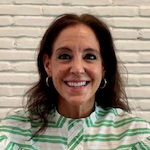
Josselyn Neukom
Josselyn, Senior Vice President at SwipeRx, started her career in public health 27 years ago as a Private Sector Advisor with USAID Tanzania and subsequently spent 20+ years leading reproductive health and nutrition programs for INGOs based in Zambia, Cambodia, Viet Nam and Washington D.C. Currently based in Ho Chi Minh City, she oversees pharmacy-focused digital health programs and research across six countries in Southeast Asia for SwipeRx. A pharmacy-focused platform, SwipeRx connects more than 245,000 pharmacy professionals and students across Southeast Asia with information, education, tools and e-commerce to optimize pharmacy contributions to family planning and other community health needs.
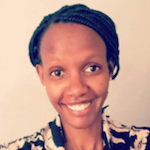
Natacha Mugeni
Natacha is the Director of Health Operations at Kasha, a femtech platform for women’s health and self-care in East Africa. She is a public health professional and SRHR advocate, holds a Master’s Degree in Epidemiology. She has managed different health projects both in the private sector and in civil society mainly in Rwanda and Kenya. More than 7 years leading programs, health research and digital health solutions in East Africa.
Panel 2
Moderator:

Ashley Jackson (ajackson@path.org)
Senior Program Officer, Family Planning
Ashley Jackson, MSPH, leads PATH’s global Sexual and Reproductive Health (SRH) team, which works in partnership with governments, civil society, and the private sector to increase SRH choice and equity. Ashley has 15 years of experience working for PATH, PSI, MSH, EngenderHealth, and FHI 360 in support of equitable access to SRH innovations, from youth-powered programs to contraceptive technologies. Prior to joining PATH in 2022, Ashley worked for PSI as the Deputy Project Director of Expanding Effective Contraceptive Options (EECO), a global project funded by USAID.
Panelists:
Prof. Unnop Jaisamrarn; Dr. Helen Blackholly; Vaibhao Ambhore; Nene Fofana
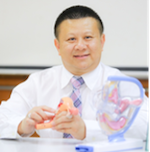
Prof. Unnop Jaisamrarn
Professor Unnop Jaisamrarn is the Chief of the Family Planning and Reproductive Health Unit in the Department of Obstetrics and Gynecology, Faculty of Medicine at Chulalongkorn University in Bangkok, Thailand. His many roles include Chair of the Sexual & Reproductive Health Committee of the Asia & Oceania Federation of Obstetrics and Gynecology (AOFOG). He is the Director of WHO Collaborating Centre for Research in Human Reproduction at Chulalongkorn University. He has joined the WHO Department of Reproductive Health and Research (RHR) Research Project Review Panel since 2017 and the WHO SEAR Technical Advisory Group on SRH since 2019.

Dr. Helen Blackholly,
Vice President and Director Technical Services for MSI Reproductive Choices
Member of the Executive team and Vice President and Director of Technical Services for MSI Reproductive Choices. Helen’s career spans over 20 years in the private commercial sector in sales, marketing, and general management across a wide range of retail and brands. This wide and deep experience is now focused on developing solutions for best practice across all MSI service delivery channels to reach both the most marginalized and disadvantaged in society but also to ensure sustainable delivery through a strengthened private sector.

Vaibhao Ambhore
Vaibhao Ambhore is a National Program Manager of Family Health portfolio at PATH India Office. With more than 12 years of experience, his professional career spans across working with Ministry of Health, research organizations and private consulting firms.

Nene Fofana
Nènè is an entrepreneur and a global health advocate. She currently is the Executive Director of Africa Forward Advisory and the founder of Africa Forward Foundation, www.africafwd.org through which she aims to contribute to Africa’s positive transformation. She is now addressing digital health, gender, and SRHR. She has 20 years of experience in organization management, strategy design, program implementation and management, and advocacy. Her global health career started with HIV, and she later specialized in reproductive health, gender, and health systems strengthening. She has worked in several regions of the globe, including Africa, Asia, and the Americas. Before her current role, she was EngenderHealth Regional Director for West and Central Africa Regional. She defines herself as a women’s health & rights activist, and a strong believer in “integrated programs that serve women.” Nènè holds a master’s in Public Health from George Washington University. She is fluent in Bambara, French, and English.
Panel 3

Lester Coutinho
Lester Coutinho is DKT’s Director of Innovation and Learning. He has championed sexual and reproductive health and human rights issues throughout his career and spent over two decades at philanthropic institutions including the David & Lucile Packard Foundation and the Bill & Melinda Gates Foundation. Lester has served in various capacities as a partner and advisor to governments and multilateral institutions to advance research, policy, and programmatic innovations in SRHR for sustainable impact. He is also a former journalist and academic. Lester holds master’s degrees in Political Science and Anthropology.

Eszter Kismödi
Eszter Kismödi JD, LLM, is an international human rights lawyer, specialized in sexual and reproductive health and rights law, policy, programming and research. Presently she is the Chief Executive of the peer-reviewed journal Sexual and Reproductive Health Matters, that promotes sexual and reproductive health and rights globally. Between 2002-2012 she worked as a human rights adviser at WHO, Department of Reproductive Health and Research. Later, she worked as an independent human rights lawyer for several UN Agencies, International Organisations and NGOs.
She is a visiting fellow at the Global Health Justice Partnership of the Yale Law School and Yale School of Public Health since 2016, and was a visiting scholar at the Human Rights Programme of the Harvard Law School in 2014. Eszter is a regular guest lecturer at various universities, an active board member with many SRHR organizations and is an author of and contributor to several WHO and other UN publications. She is Hungarian, based in Geneva Switzerland.

Vithika Yadav
Vithika Yadav is a prominent human rights professional, trainer and a social entrepreneur. She works on sexual rights, gender rights and anti-slavery issues around the world. Vithika co-founded Love Matters India, which is the first ever and most popular digital initiative in India to give complete, honest and non-judgmental information on SRHR to young people in India in both Hindi and English languages. Vithika is also the founder of TeenBook – India’s first comprehensive life skills resource hub for adolescents, teenagers, parents and educators. In 2016 she received the honor of being one of the Top 120 under 40 New Generation of Family Planning leaders in the world. Vithika was featured in the award winning documentary #FemalePleasure and she serves as the Chair of The Durex Global Advisory Board on Sexual Health and Well-being.

Anne Philpott
Anne Philpott’s career in sexual health started with sex education in the United Kingdom, working as a practitioner and service provider. From there she worked with a condom company and later the UK’s DfID/Foreign, Commonwealth and Development Office in many capacities. As a “pleasure propagandist, Anne promoted condoms and pleasure wherever she could including every global AIDS and SRHR conference since 2005. Anne believes that with digital health interventions we have an opportunity to empower, enhance sexual rights and achieve better safe sex, well-being, fulfilment, and enhancement of sexual rights.
The Pleasure Project is an international education and advocacy organization working to eroticize safer sex and promote pleasure inclusive sexual health. The Project promotes sexual health and agency through an emphasis on ‘good sex’ and by focusing on one of the primary reasons people have sex – the pursuit of pleasure – and by acknowledging diverse desires and means of satisfaction. The Pleasure Project was the first organisation to define pleasure-based sexual health. Anne worked closely with the World Association of Sexual Health to ratify the first global normative Declaration on Sexual Pleasure.

Accessing family planning methods in India during COVID-19
By Diana Klatt. Originally Posted on www.medium.com. COVID-19 has changed the way that we live our daily lives around the world. In India, households have been under lockdown since 25 March, forcing significant changes to healthcare seeking behavior. Leaving home to...

Is there an association between readiness and action in adopting family planning?
By Jessica Heinzelman. Originally posted on www.medium.com. Nivi shares the goal of FP2020 to reach millions of additional users of family planning who want to delay or prevent pregnancy but are not using modern methods of contraception. In order to realize behavior...
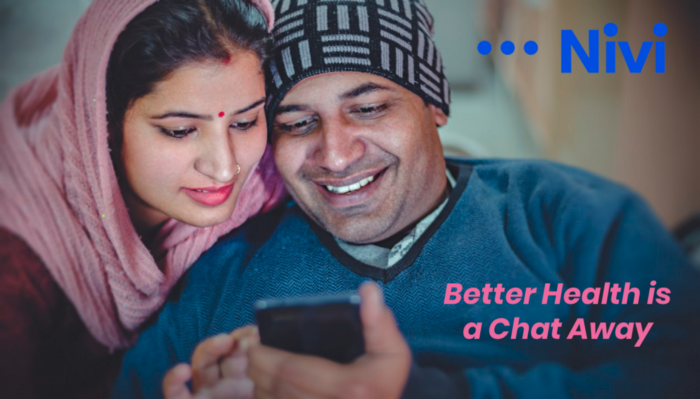
2 Million and Growing!: A Look Back (and Forward) on the Evolution of Nivi
By Diana Klatt. Originally posted on www.medium.com. Things may seem tumultuous in the world right now but not here at Nivi — we’re excited to share the news that we’ve reached 2 million users! That’s 2 million users that we are guiding through conversations about...
Private Sector Community Overview
The private sector – in relation to family planning – is defined as non-state market actors with direct, supporting, or enabling functions aimed at increasing access, availability and use of FP products and services. These include a wide range of actors: commercial for-profit, faith-based, and non-profit; US-based, local and international; formal and informal sectors, including traditional and community health providers.
While this a relatively broad definition, the commercial for-profit, and health provider segments (outside of faith-based and non-profit / SMO) as well as other actors noted above would benefit from more clear inclusion and valuation associated with their role in the FP equation.

